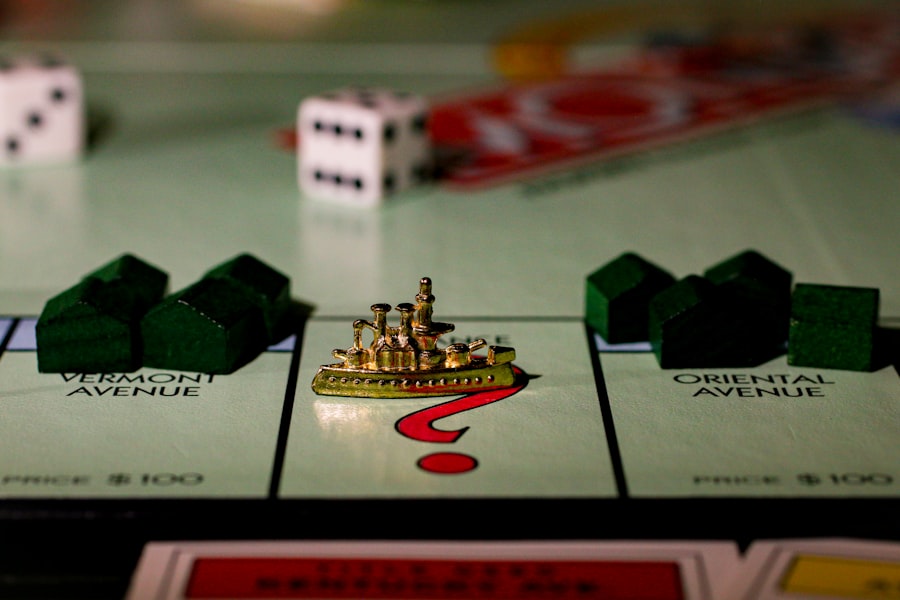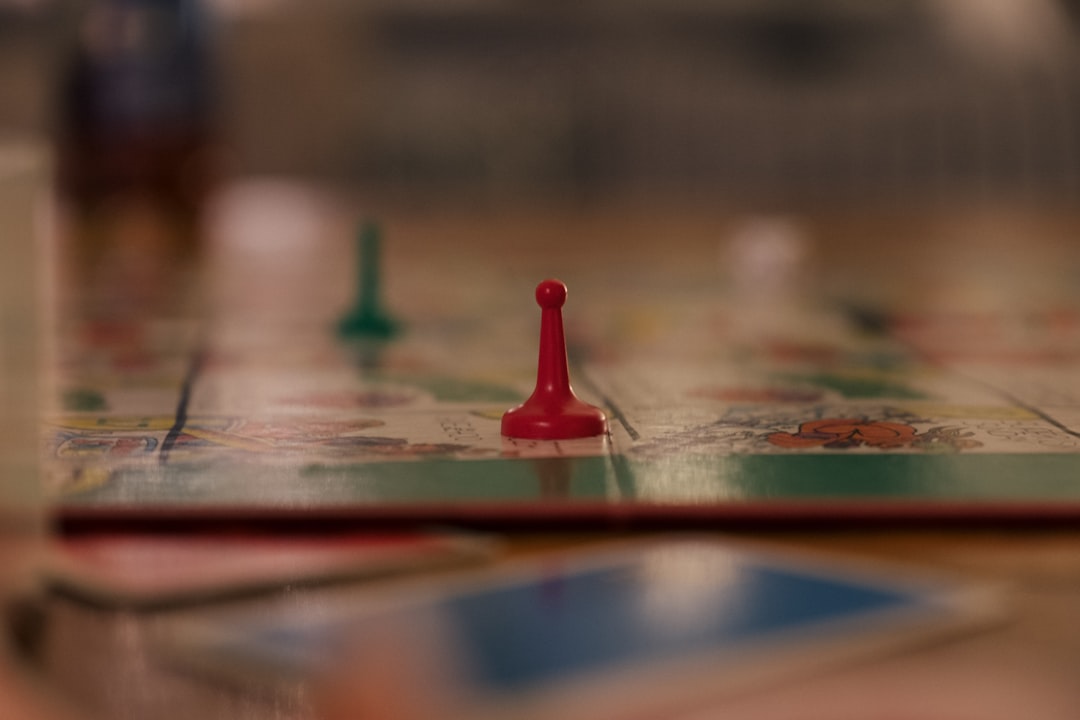The Monopoly Man, known formally as Rich Uncle Pennybags, has become an iconic figure in the realm of board games and pop culture. His distinctive appearance, complete with a top hat, mustache, and a suit, is instantly recognizable. However, one of his most notable features—the monocle—has sparked curiosity and debate regarding its origins.
While the character was created in the early 20th century, the monocle itself has a much older history, often associated with the upper class and intellectuals of the Victorian era. You might find it interesting that the monocle was not originally a staple of the wealthy elite but rather a practical tool for those who needed vision correction. It became fashionable among gentlemen in the 19th century, often seen as a mark of sophistication.
The inclusion of a monocle in the design of the Monopoly Man likely reflects a caricature of the wealthy businessman archetype prevalent in that era. This blend of practicality and style has contributed to the enduring image of the Monopoly Man, making him a symbol of both wealth and whimsy.
Key Takeaways
- The Monopoly Man Monocle has its origins in the early 20th century as a symbol of wealth and privilege.
- The monocle has long been associated with wealth and prestige, often worn by the upper class and elite members of society.
- The monocle has evolved in fashion from a functional accessory to a fashion statement, often seen as a sign of sophistication and refinement.
- The Monopoly Man Monocle has become a popular cultural symbol, often used to represent wealth, power, and elitism in media and entertainment.
- The monocle continues to be a status symbol, representing a certain level of sophistication and exclusivity in contemporary society.
The Monocle as a Symbol of Wealth and Prestige
Throughout history, the monocle has been closely associated with affluence and social status. In your mind’s eye, you can picture the well-dressed gentleman of yesteryear, peering through his monocle while discussing investments or negotiating deals. This accessory was not merely functional; it was a statement piece that signified one’s place in society.
The act of wearing a monocle suggested that one had the means to afford such luxuries, elevating the wearer in the eyes of their peers. As you delve deeper into this symbolism, you may notice that the monocle has often been used to portray characters in literature and film as wealthy or eccentric. From the pages of classic novels to modern cinema, characters adorned with monocles are frequently depicted as shrewd businessmen or aristocrats.
This association has solidified the monocle’s status as a symbol of prestige, making it an enduring element in the portrayal of wealth across various media.
The Evolution of the Monocle in Fashion

The monocle’s journey through fashion is a fascinating one. Initially embraced by the upper class, it began to wane in popularity as more practical eyewear options emerged. However, you might be surprised to learn that the monocle has experienced several resurgences throughout history.
In the early 20th century, it was often seen on stage and screen, worn by characters who embodied sophistication and charm. In contemporary fashion, you may have noticed a revival of vintage styles, including accessories like the monocle. Designers have reimagined this classic piece, incorporating it into modern outfits and runway shows.
This evolution reflects a broader trend toward nostalgia in fashion, where past styles are reinterpreted for new generations. As you explore this trend, consider how the monocle has transitioned from a practical tool to a fashion statement, embodying both history and modernity.
The Monopoly Man Monocle in Popular Culture
| Popular Culture Reference | Description |
|---|---|
| Mr. Peanut | The mascot for Planters peanuts also wears a monocle, similar to the Monopoly Man. |
| Rich Uncle Pennybags | The mascot for the board game Monopoly, often referred to as the Monopoly Man, is known for his top hat and monocle. |
| The Simpsons | The character of Mr. Burns is often depicted wearing a monocle, resembling the Monopoly Man. |
| Pop Culture Art | The Monopoly Man with his monocle has been depicted in various art pieces and street art, becoming a symbol of wealth and capitalism. |
The Monopoly Man’s monocle has transcended its original context to become a cultural icon in its own right. You may have encountered references to this character in various forms of media, from cartoons to memes. The image of Rich Uncle Pennybags has been parodied and reimagined countless times, often highlighting his wealth and eccentricity through his signature monocle.
In popular culture, the Monopoly Man serves as a satirical representation of capitalism and greed. His exaggerated features, including the monocle, emphasize the absurdity of wealth accumulation and social status. As you engage with these cultural references, consider how they reflect societal attitudes toward wealth and privilege.
The monocle becomes more than just an accessory; it transforms into a symbol that critiques or celebrates the very nature of capitalism itself.
The Monocle as a Status Symbol
As you explore the concept of status symbols, it’s essential to recognize how certain accessories can convey messages about one’s social standing. The monocle is no exception; it has long been viewed as an emblem of exclusivity and refinement. When you see someone wearing a monocle, it often evokes images of high society and privilege, suggesting that they belong to an elite class.
This perception is not without its complexities. While some may view the monocle as a signifier of sophistication, others might see it as an outdated relic of a bygone era. In your interactions with fashion and social dynamics, consider how accessories like the monocle can shape perceptions and influence social hierarchies.
The monocle’s dual nature as both a status symbol and a potential target for ridicule adds depth to its significance in contemporary society.
The Monopoly Man Monocle in Advertising and Marketing

The Monopoly Man’s monocle has also found its way into advertising and marketing strategies. Brands often leverage this iconic imagery to evoke feelings of wealth and success. When you see advertisements featuring characters reminiscent of Rich Uncle Pennybags, they often aim to associate their products with affluence and luxury.
This connection can be powerful; consumers are drawn to products that promise an elevated lifestyle. Moreover, you might notice how companies use the Monopoly Man’s image to create playful campaigns that resonate with audiences. By tapping into nostalgia and familiarity, brands can effectively engage consumers while simultaneously reinforcing their own identity as purveyors of quality and prestige.
As you navigate advertisements that utilize this imagery, consider how they shape your perceptions of wealth and desirability.
The Monocle’s Role in Class and Social Hierarchy
The monocle’s presence in society extends beyond mere fashion; it plays a significant role in class dynamics and social hierarchy. When you think about individuals who wear monocles, you may envision a specific type of person—often wealthy or influential—who occupies a certain position within society. This association can reinforce existing class structures and perpetuate stereotypes about wealth and privilege.
In your observations of social interactions, consider how accessories like the monocle can influence perceptions of authority and respectability. Those who wear such items may be treated differently based on their appearance alone, highlighting the power dynamics at play in everyday life. The monocle serves as a reminder that our choices in fashion can carry weighty implications for how we are perceived by others.
The Monocle as a Signifier of Elitism
As you reflect on the monocle’s place in society, it’s essential to acknowledge its role as a signifier of elitism. This accessory has historically been associated with those who possess wealth and power, creating an aura of exclusivity around its wearers. When you encounter someone sporting a monocle, it may evoke feelings of admiration or envy—emotions tied to societal hierarchies.
However, this elitism can also breed resentment or criticism. In contemporary discourse surrounding wealth inequality, symbols like the monocle can become targets for critique. You might find that discussions about privilege often reference such accessories as markers of an outdated class system that continues to persist in modern society.
As you engage with these conversations, consider how symbols like the monocle can both elevate individuals and serve as reminders of societal divides.
The Monopoly Man Monocle and its Political Implications
The political implications surrounding the Monopoly Man’s monocle are worth exploring further. As you analyze this character within the context of capitalism and economic disparity, you may begin to see how his image reflects broader societal issues. The exaggerated features of Rich Uncle Pennybags serve as a caricature of capitalist excess—an embodiment of greed that critiques the very system he represents.
In political discourse, symbols like the Monopoly Man can be powerful tools for commentary on wealth distribution and corporate influence. When you see references to this character in political cartoons or discussions about economic policy, consider how they highlight concerns about inequality and privilege. The monocle becomes more than just an accessory; it transforms into a visual representation of societal critiques that resonate with audiences on multiple levels.
The Monocle’s Place in Contemporary Society
In contemporary society, the monocle occupies an intriguing space between nostalgia and modernity. While it may not be as commonly worn today as other eyewear options, its presence persists in various forms—whether through fashion statements or cultural references. You might notice that some individuals embrace the monocle as a quirky accessory that sets them apart from mainstream trends.
As you navigate contemporary fashion landscapes, consider how the monocle can serve as both an homage to history and a bold statement piece. Its revival among certain subcultures reflects a desire for individuality and uniqueness in an increasingly homogenized world.
The Future of the Monopoly Man Monocle
Looking ahead, the future of the Monopoly Man’s monocle remains uncertain yet promising. As fashion continues to evolve and societal attitudes shift, you may witness new interpretations of this classic accessory emerge. Designers may experiment with innovative materials or styles that breathe new life into the traditional monocle while retaining its historical significance.
Moreover, as discussions around wealth inequality persist in public discourse, symbols like the Monopoly Man’s monocle may take on new meanings within contemporary contexts. You might find that future representations challenge existing stereotypes or provoke thought about societal structures in ways that resonate with younger generations. Ultimately, whether embraced or critiqued, the legacy of the Monopoly Man’s monocle will likely endure as both a symbol of wealth and an emblematic reflection of our evolving relationship with status and privilege.
In the world of pop culture misconceptions, the Monopoly Man’s monocle is a classic example of the Mandela Effect, where many people mistakenly remember the character as wearing a monocle when, in fact, he does not. This phenomenon is explored in various articles, including one on the Hey Did You Know This website. For more intriguing insights into common misconceptions and surprising facts, you can check out their related article that delves into similar topics and challenges what we think we know.
WATCH THIS! Don’t Believe Everything You Think — Your Brain Is A Master Trickster!
FAQs
What is the Monopoly Man Monocle?
The Monopoly Man Monocle refers to the iconic character from the board game Monopoly, who is often depicted wearing a top hat and a monocle.
Is the Monopoly Man Monocle a real person?
No, the Monopoly Man Monocle is a fictional character created for the board game Monopoly.
Why is the Monopoly Man Monocle iconic?
The Monopoly Man Monocle is iconic because it has become a symbol of wealth and monopoly in popular culture. The character is often associated with the concept of monopoly and wealth accumulation.
Does the Monopoly Man Monocle always wear a monocle?
Yes, the Monopoly Man character is traditionally depicted wearing a monocle, which has become a defining feature of the character.
Is the Monopoly Man Monocle associated with any specific brand or company?
The Monopoly Man Monocle is associated with the board game Monopoly, which is owned by Hasbro. The character is not associated with any specific brand or company outside of the game.
